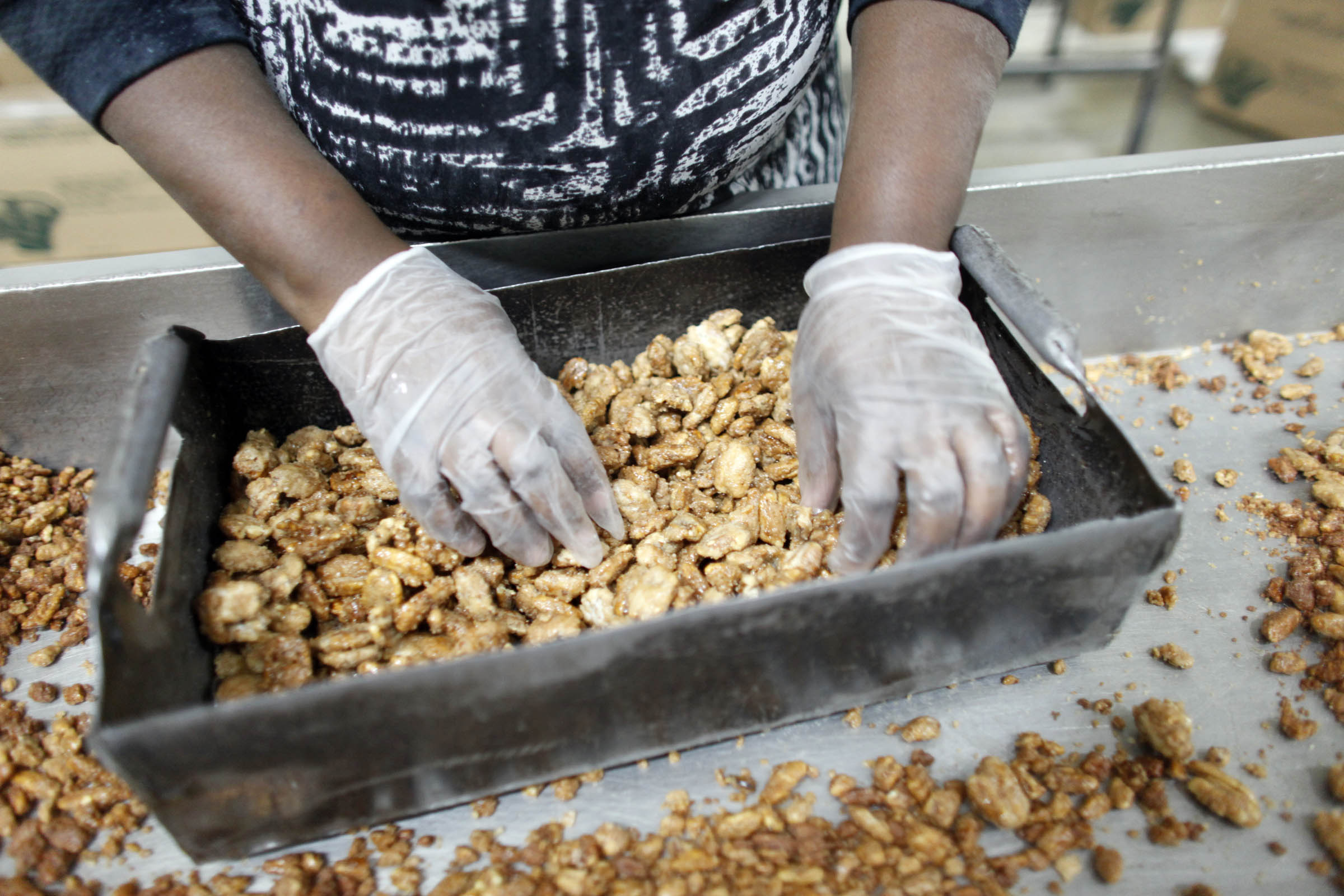Georgia pecan growers seek level playing field in world market
Monday, January 6, 2014
ATLANTA - Georgia pecan grower Randy Hudson and his fellow farmers are on a mission to bring the American treat to the world.
It's an effort that's paid off in places like China, Turkey and Dubai, where pecan exports have flourished.
But the next big market targeted by the industry is proving a problem.
India "has the potential to be as big a pecan customer as China," Hudson said, but it imposes a tariff rate of about 36 percent on the nut. Pecan exporting to India is still in the early stages, and sales are relatively small. But the prospect of much bigger sales stands to be limited by the tariff because it makes pecans more expensive.
The industry - which is lobbying for a more reasonable rate, around 10 percent - has enlisted the help of officials in Washington to press its case.
U.S. Rep. Sanford Bishop Jr., D-Albany, a member of the Appropriations Subcommittee on Agriculture, sent a letter to U.S. Trade Representative Michael Froman.
"There is a disturbing discrepancy between import tariff rates which have been applied by India to various tree nuts. U.S. growers have visited India, met with potential buyers and participated in trade shows, yet they continue to find the current tariff rate a major barrier to U.S. pecans entering India, " the letter said.
He asked that the government "urge India to lower their import tariff rates on U.S. pecans."
Hudson called the tariff "a significant blow."
With its large population and rising middle class, India offers the prospect of a large new market for pecan growers.
That is important because the pecan industry relies heavily on exports. About one-third of total U.S. production is bought by China alone.
But the export market involves risk, too. A recent independent market analysis said importing nations such as China can turn to other pecan exporting countries like South Africa if U.S. pecan prices rise too high or if crop woes limit the amount of nuts available for sale.
Pecans are the only native tree nut grown in the U.S., which remains the biggest pecan producer in the world by far. They are produced commercially in 15 states, and Georgia is the top producer.
A spokesperson for the office of the U.S. Trade Representative said it is working with the Indian government, "to identify opportunities in the Indian tariff-setting process for reducing tariffs on pecans."
The USTR said the high tariff on pecans is not unusual because India has some of the highest agricultural tariffs in the world.
"India has occasionally lowered the tariff rate for food products with a track record of imports," the USTR said. It pointed to lowered tariffs on almonds and pistachios, which came"after repeated requests."
Such history gives pecan growers hope, but suggests patience is needed.
"I think (the market in India) eventually will be big, but it's going to take time to develop it," said Hilton Segler, executive director of the National Pecan Growers Council.
Segler said the industry began doing limited outreach work in China a decade ago, but didn't see real success there until the last five or six years.
Typically, he said, the industry moves into a country by attending food trade shows in that nation that have been set up by the U.S. government. Pecan representatives set up a booth where visitors come around, take sample products, look at, smell and taste products.
Representatives also offer curious visitors literature about pecans and talk about the nut's nutritional value.
"We're laying the groundwork," said Hudson, who has been to India to promote pecans.
"It's a matter of teaching them about the pecan," he said. "We'll lay them on a table and they see them, but don't know them at all."
The pecan industry has experienced its ups and downs in recent years, with prices climbing in 2010, helping spur growers to plant more trees.
Production fell this year, however, as heavy rainfall during the summer led to diseased trees, and prices lagged behind what they were in 2010 and 2011. But the planting has continued, said Lenny Wells, a pecan expert at the University of Georgia.
Wells said more than 20,000 new acres of pecan trees have been planted in the last five years, 7,000 to 8,000 in 2012 alone.
He called all that growing, "a little bit of a gamble." The industry is still developing markets, but it's not certain how productive they will be in the long term.

